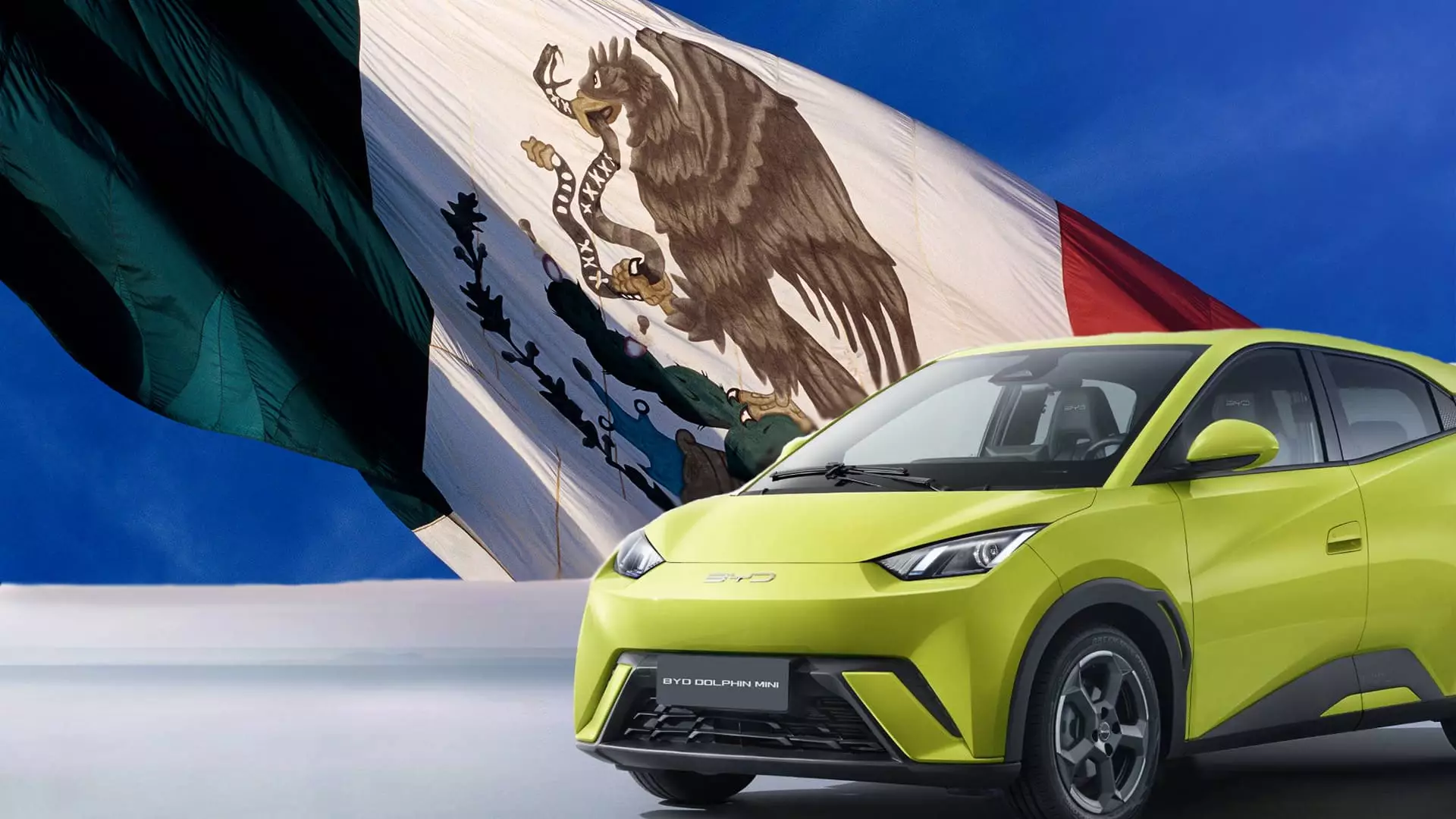The ongoing trade war between the U.S. and China has led Chinese electric vehicle (EV) makers to explore new markets outside the U.S. One of the emerging markets for Chinese EVs is Mexico, where affordable price tags and aggressive marketing strategies have attracted customers. Last year, China was the largest car supplier to Mexico, exporting vehicles worth $4.6 billion. Companies like BYD have priced their EVs competitively in Mexico, with the Dolphin Mini selling for around 398,800 pesos, significantly lower than the cheapest Tesla option. This has made Chinese EVs a popular choice among Mexican consumers.
While the growth of Chinese EV sales in Mexico is beneficial for the country’s economy, U.S. officials are becoming increasingly wary of the situation. There are concerns that Mexico could be used as a “backdoor” for Chinese EV makers to enter the U.S. market, circumventing the trade restrictions imposed by the U.S. on Chinese imports. The United States-Mexico-Canada Agreement (USMCA) allows duty-free exports to the U.S. if foreign auto companies manufacture in Mexico and source building materials locally. This has raised alarms among U.S. lawmakers and auto companies, who fear that Chinese EV makers could pose a threat to American automakers due to lower production costs.
President Joe Biden imposed a 100% tariff on Chinese EVs in an effort to protect the growing U.S. EV industry, which he described as an “infant industry.” The U.S. is still in the early stages of scaling up its EV production, and the influx of Chinese EVs could hinder its growth. This has led to growing concerns about the potential impact on American automakers and the need to safeguard the domestic industry against foreign competition. U.S. officials are closely monitoring the situation to prevent Chinese EV makers from gaining a foothold in the American market through Mexico.
As pressure from the U.S. intensifies, Mexico finds itself in a delicate position of maintaining its crucial relationship with America while also welcoming Chinese investment. The growing presence of Chinese companies, not just in the EV sector but across various industries, poses challenges for Mexico in navigating its trade relationships. Balancing the interests of both the U.S. and Chinese investors is crucial for Mexico to continue benefiting from foreign investment while avoiding any negative repercussions.
The increasing popularity of Chinese EVs in Mexico raises valid concerns about their potential impact on the U.S. market. As Chinese automakers explore opportunities in Mexico to circumvent trade restrictions, U.S. officials must remain vigilant to protect American industries. Finding a balance between fostering trade relationships and safeguarding domestic interests is essential for both Mexico and the U.S. to navigate the evolving landscape of the automotive industry.

